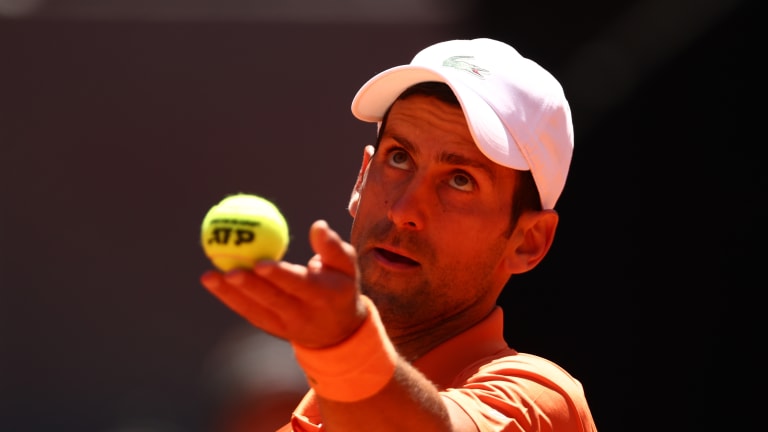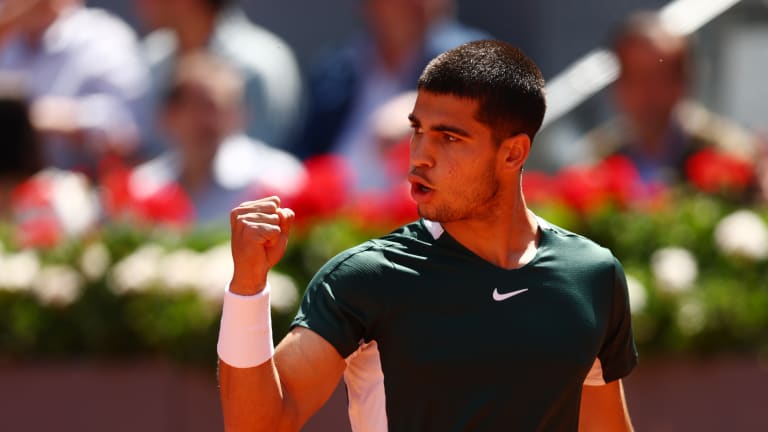Madrid, Spain
Novak Djokovic has cruised into the Madrid semifinals, but is still seeking his optimal state
By May 06, 2022Madrid, Spain
"It’s being a complicated injury": Paula Badosa forced to delay 2025 clay debut with back issue
By Apr 25, 2025Madrid, Spain
Reigning Madrid champ Andrey Rublev gets walkover from Gael Monfils; 2024 finalist Auger-Aliassime out
By Apr 25, 2025Madrid, Spain
Diana Shnaider vs. Anastasija Sevastova: Where to Watch, Madrid Preview, Betting Odds
By Apr 25, 2025Madrid, Spain
Novak Djokovic vs. Matteo Arnaldi: Where to Watch, Madrid Preview, Betting Odds
By Apr 25, 2025Madrid, Spain
Joao Fonseca vs. Tommy Paul: Where to Watch, Madrid Preview, Betting Odds
By Apr 25, 2025Madrid, Spain
Elena Rybakina vs. Bianca Andreescu: Where to Watch, Madrid Open Betting Odds
By Apr 25, 2025Madrid, Spain
Holger Rune vs. Flavio Cobolli: Where to Watch, Madrid Open Betting Odds
By Apr 25, 2025Madrid, Spain
Emma Raducanu vs. Marta Kostyuk: Where to Watch, Madrid Open Betting Odds
By Apr 25, 2025Madrid, Spain
Coco Gauff joins Iga Swiatek in rallying to win Madrid opener
By Apr 24, 2025Novak Djokovic has cruised into the Madrid semifinals, but is still seeking his optimal state
The Serbian's recent history triggers some very real red flags that he probably needs to address in the coming months, if he hopes to add to his haul of 20 major titles.
Published May 06, 2022
Advertising
Advertising

Novak Djokovic hasn't played much in 2022—due to his own actions—and, not suprisingly, hasn't looked like the player that dominated 2021.
© Getty Images
Advertising
Advertising

The emergence of Carlos Alcaraz as a top-tier threat has given Djokovic much more to think about on the court.
© Getty Images